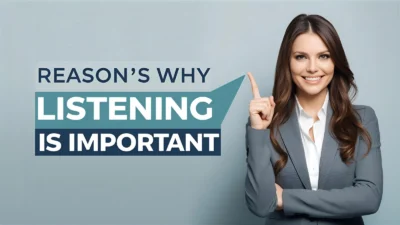Life isn’t meant to be lived alone. From childhood to old age, friendship plays a vital role in shaping who we are, how we feel, and how we navigate the world. Friends bring joy, support, laughter, and sometimes even the tough love we need to grow.
But why is friendship so important? The answer goes far beyond companionship—it touches on our emotional health, personal growth, and overall happiness.
Understanding the Meaning of Friendship
Friendship is a mutual relationship of trust, support, affection, and care between people. Unlike family, which we are born into, friendship is a chosen bond.
📌 Definition: Friendship is a voluntary relationship built on trust, loyalty, and emotional connection.
It’s more than just spending time together—it’s about being truly seen and valued by someone else.
The Psychology of Friendship
Psychologists have long studied friendships to understand their impact on human behavior.
- Maslow’s hierarchy of needs: Love and belonging are fundamental for well-being.
- Attachment theory: Secure relationships (including friendships) build confidence and resilience.
- Positive psychology: Friendships increase happiness, reduce stress, and extend life expectancy.
💡 Studies show that strong friendships can even improve immune function and lower the risk of depression.
Why Friendship Is Important in Daily Life
Friendship affects nearly every aspect of our daily existence:
- Emotional support – friends listen when we need to vent.
- Practical help – they assist in times of crisis.
- Shared joy – laughter and fun are magnified with friends.
- Personal growth – friends challenge us to become better.
- Belonging – they give us a sense of being accepted.
✨ Without friendships, life can feel lonely and less meaningful.
Friendship and Mental Health
Good friendships directly affect mental health:
- Reduce stress and anxiety.
- Lower risk of depression.
- Boost self-esteem and confidence.
- Encourage healthy habits (like exercising together).
📌 Example: A study from Harvard found that people with strong friendships live longer and report higher happiness levels than those without.
Friendship and Physical Health
Believe it or not, friendships even improve physical health:
- Lower blood pressure.
- Stronger immune system.
- Faster recovery from illness.
- Reduced risk of heart disease.
🌱 Healthy friendships are just as vital as exercise and nutrition.
Friendship and Personal Development
Friends push us out of our comfort zone and help us grow:
- Teach us empathy and understanding.
- Provide constructive criticism.
- Inspire us with new ideas and perspectives.
- Hold us accountable to goals and dreams.
💡 A true friend celebrates your wins and helps you learn from failures.
Types of Friendship
Friendships come in many forms, and each plays a unique role:
- Childhood friends – shape early social skills.
- School/college friends – share milestones and adventures.
- Work friends – provide camaraderie in professional life.
- Best friends – the closest and most loyal companions.
- Online friends – connections formed in the digital world.
👉 Every type of friendship adds value to life.
Real-Life Examples of Friendship’s Impact
- J.R.R. Tolkien and C.S. Lewis – their friendship fueled literary masterpieces.
- Oprah Winfrey and Gayle King – decades of mutual support shaped their success.
- Helen Keller and Anne Sullivan – a life-changing bond that turned struggle into triumph.
🌟 History proves that strong friendships can change lives—and sometimes, the world.
Challenges in Friendships
Friendship isn’t always easy. Common challenges include:
- Miscommunication or misunderstandings.
- Jealousy and competition.
- Growing apart due to life changes.
- Betrayal or broken trust.
📌 Key: Healthy communication and forgiveness help maintain friendships through ups and downs.
How to Build and Maintain Strong Friendships
- Be reliable – keep promises.
- Listen actively – show empathy and care.
- Celebrate successes – share joy, not jealousy.
- Be honest – truth strengthens bonds.
- Make time – quality time keeps friendships alive.
✨ Friendship is like a plant—it needs nurturing to thrive.
Idioms and Expressions About Friendship
- “A friend in need is a friend indeed” – true friends help in tough times.
- “Thick as thieves” – very close friends.
- “Bury the hatchet” – to forgive and restore friendship.
- “Joined at the hip” – inseparable friends.
- “Circle of friends” – a close-knit group.
Synonyms for Friendship (with Usage Examples)
| Synonym | Example Sentence |
|---|---|
| Companionship | Her companionship made the journey enjoyable. |
| Camaraderie | There was a strong sense of camaraderie among teammates. |
| Bond | The sisters shared a bond like no other. |
| Fellowship | The club fosters fellowship among its members. |
| Alliance | Their alliance grew into a lasting friendship. |
Grammar Note: “Friend” vs. “Acquaintance”
- Friend – someone you share trust and closeness with.
- She’s my best friend—I can tell her anything.
- Acquaintance – someone you know but aren’t very close to.
- He’s more of an acquaintance than a close friend.
📌 Knowing the difference helps you value deep friendships more.
The Future of Friendship in a Digital World
Friendship is evolving with technology:
- Social media expands circles but may reduce depth.
- Online gaming creates friendships across continents.
- Virtual reality may bring more immersive social bonds.
- AI companions could supplement—but not replace—human friendships.
🌍 Even in a digital age, the need for genuine connection remains timeless.
FAQs About Why Friendship Is Important
Q1: Why is friendship important in life?
Because it provides emotional support, happiness, and belonging.
Q2: Can friendships improve health?
Yes, studies show strong friendships reduce stress and boost physical health.
Q3: Are online friendships real friendships?
They can be, as long as they’re based on trust, care, and honesty.
Q4: What makes a good friend?
Loyalty, empathy, honesty, and reliability.
Q5: Why do some friendships fade?
Life changes, distance, or lack of effort can weaken bonds—but effort can revive them.
Conclusion
Friendship is more than just fun—it’s a lifeline of emotional, mental, and physical well-being. True friends enrich our lives, help us grow, and give us the strength to face challenges.
The reasons why friendship is important are endless: it provides belonging, love, laughter, and support. A world without friendship would be colder, lonelier, and less meaningful.

Bret Lee writes educational and research-based content for Whygenix.com, focused on clarity, accuracy, and explaining why concepts matter through simple, engaging, reader-friendly writing.




